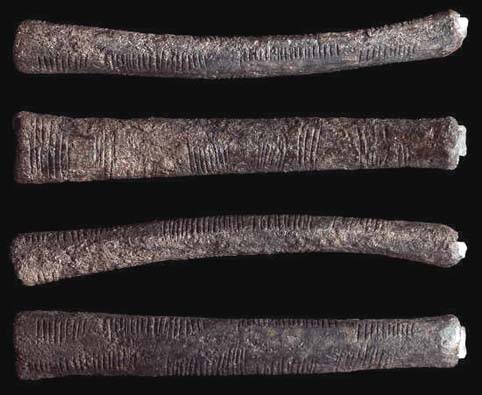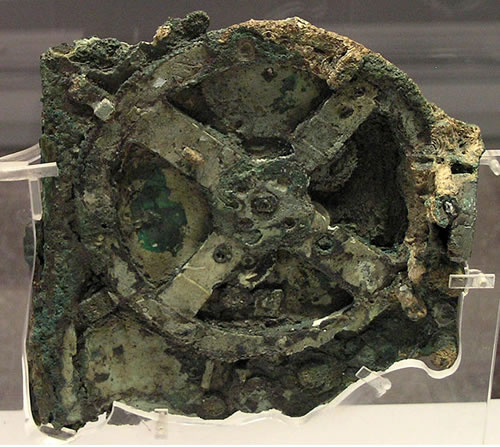So, with the importance of history determined, can the same themes be applied to science and, more specifically, computing?
The computer, like English, is a tool that must be understood in depth to be useful, richer, and explored. The point being, history is important. The basic principles that existed in early computers are kept today in super computers. The better we understand the basics, the better we can apply our own knowledge to manipulate the physical world and progress. (Teach the basics at every practice) The computer and the internet are cultural as well as technical artifacts. These aspects continue to change today. An interesting article titled The Wonderful World of Early Computing outlines interesting models of computing ranging from 35,000 years ago to today...I didn't even know people lived 35,000 years go. ha
 |
| Lebombo Bones |
Abacus is an early calculator used in ancient Greece, Rome, and Egypt. Interestingly, the abacus does not perform the computing. It only keeps track for the human. Similarities? Are there basic principles of computing here?
 |
| Antikythera Mechanism |
Jump further forward in time to 1623, we learn about Wilhelm Schickard's Calculating Clock. This beautiful machine could add and subtract 6 digit numbers, using a bell to notify the user of an overflow of data (machines that notify us? see this in modern times?) This invention was a huge leap to modern day computing and astronomy.
Leibniz invented a Stepped Reckoner that was capable for addition, subtraction, multiplication, and division. Through the use of a cylinder with nine-bar shaped teeth and a stepped drum, he created this incredible calculator.
Other great inventions include the loom, Konrad Zuse's Z3 computer, and ENIAC, the world's first electronic digital computer.
Fastfoward to our time and we have supercomputers that perform multiple tasks for us. Do we know how these work? As we better understand the science and history behind these powerful machines, we will be more capable of using them and discovering more effective methods and procedures. From basic computer history and science, we now have abilities to calculate and predict protein and disease structure, reach new horizons in space exploration, communicate freely with people all over the world, and so much more.
Today's work is tomorrow's history.
Fascinating and comprehensive. I love the new name of your blog!
ReplyDelete